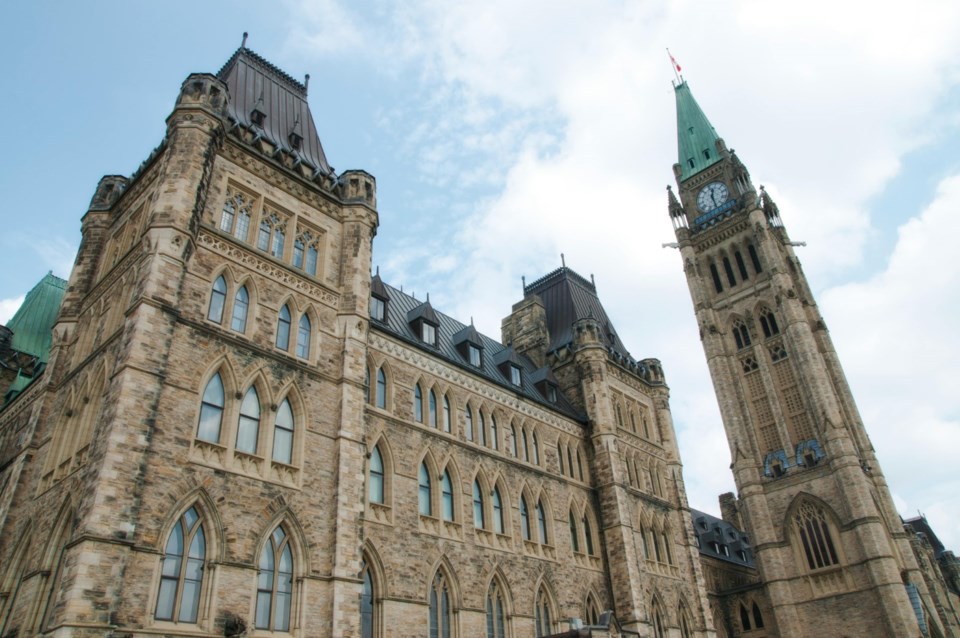Public Safety Canada’s claims to improve emergency management, but given the government’s heavy-handed response to COVID-19, Canadians should be skeptical. Is this about disaster preparedness or another attempt to centralize control in Ottawa?
The report, released earlier this month, identifies gaps in emergency response, proposes governance reforms and seeks to integrate Indigenous knowledge. But will this framework actually empower Canadians, or will it hand more power to federal bureaucrats at the expense of local decision-making?
Canadians should remember how Ottawa handled the last crisis. The federal government’s pandemic response went from “flatten the curve” to widespread suppression of civil liberties. Freedom of movement was restricted through travel bans, interprovincial checkpoints and forced quarantines. Vaccine passports divided the population, and dissenters were denied unemployment benefits.
Bodily autonomy was cast aside as vaccine mandates became a condition for employment, travel and public access. Former Prime Minister Justin Trudeau openly demonized those who refused to comply. The government weaponized financial tools, freezing the bank accounts of truckers protesting vaccine mandates under the Emergencies Act. Small businesses were crushed while large corporations thrived. Government officials broke their own rules while ordinary Canadians faced fines for visiting family.
Throughout this, Parliament offered little resistance. Few elected officials stood against these measures, and opposition parties were either complicit or ineffective. With this track record, why should Canadians trust Ottawa with even greater emergency powers?
The What We Heard Report also emphasizes integrating Indigenous knowledge into emergency response. While traditional knowledge has value, emergency preparedness should be based on tested, science-driven strategies. If Indigenous practices improve disaster management, they should be included on merit, not as a political gesture to satisfy Ottawa’s diversity agenda. Emergency management must remain rooted in empirical science, logistical planning and proven crisis response methods. Otherwise, it risks becoming a symbolic exercise rather than a functional strategy.
The report’s language signals more than disaster response. “Clarifying roles and responsibilities” sounds reasonable, but in government terms, it often means consolidating power at the federal level. The Trudeau government’s pandemic policies showed how quickly “public safety” can become a pretext for overriding constitutional freedoms. A new emergency framework, without clear limitations, risks repeating the same pattern.
More concerning is the trend of governments manufacturing emergencies to justify overreach. Prime Minister Mark Carney, who succeeded Trudeau earlier this month, has already floated the idea of using . This should alarm every Canadian. If a financial downturn can be labelled a crisis, what stops the government from invoking emergency measures for climate change, “misinformation” or any other politically convenient issue?
Even beyond the pandemic, Ottawa has demonstrated a tendency to expand power under the guise of crisis management. The Emergencies Act was originally intended for situations of national security, not financial disputes or protests. Yet the government deployed it against its own citizens for the first time in history. What is to stop future administrations from normalizing its use for lesser justifications? If the COVID-19 response taught Canadians anything, it is that governments rarely return powers they have seized.
There is a better way. Sweden’s model prioritizes local control, treating citizens as responsible adults rather than subjects to be controlled. Municipalities handle emergencies with minimal interference from the federal government. Public trust is maintained through straightforward crisis preparedness advice, such as If Crisis or War Comes, which is distributed to every household. Sweden refused to sacrifice individual freedoms during COVID-19, relying on voluntary measures rather than coercion.
Had Canada followed this model, much of the economic devastation and social division from COVID-19 policies could have been avoided. But decentralization would mean less control for Ottawa—something federal officials appear unwilling to accept.
Sweden’s approach treats emergency preparedness as a partnership between government and citizens. Canada’s model risks becoming a rigid, top-down system where decision-making is concentrated in the hands of unelected officials. The What We Heard Report lacks any assurances that power will be shared with provinces, municipalities or citizens in a meaningful way. Instead, it hints at an Ottawa-driven response, one where bureaucrats dictate the terms while Canadians are expected to comply.
Emergencies will happen, but government responses must be limited, proportionate and protective of fundamental freedoms. This report provides no guarantees that Ottawa won’t repeat its pandemic-era mistakes—or worse, use emergency measures to entrench political control.
Canada cannot afford to give more power to a government that has already eroded civil liberties in the name of safety. Before accepting any new emergency framework, Canadians must demand clear safeguards to prevent abuse. Otherwise, the next “emergency” could be just another excuse to strip away freedoms once again.
Marco Navarro-Genie is the vice president of research at the Frontier Centre for Public Policy. With Barry Cooper, he is coauthor of (2023).
©
The commentaries offered on 小蓝视频 are intended to provide thought-provoking material for our readers. The opinions expressed are those of the authors. Contributors' articles or letters do not necessarily reflect the opinion of any 小蓝视频 staff.




